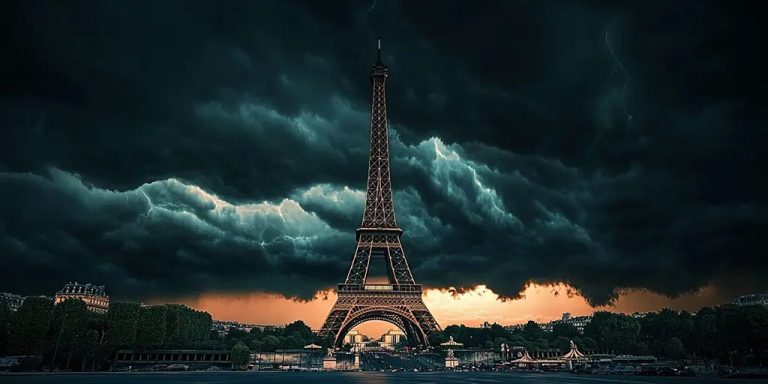Vijay Jayaraj
The Paris Summer Games (including the Olympic and Paralympic Games) are over. Although the United States placed first at the Olympics and in the top three at the Paralympics, much of the world's attention was focused on the Games' obscene mockery of Christianity during the opening ceremony in Paris.
It also casts a shadow over some unprecedented events in the city. Days before the Olympics, French authorities fined the country's second-largest news channel 20,000 euros for challenging popular narratives about the so-called climate crisis.
CNews, a 24/7 news organization, has been accused by the Audiovisual and Digital Communications Regulator (ARCOM) of failing to adequately challenge skeptics of global warming fears in its broadcasts.
QuotaClimat said: “This is the first time in France and internationally that ARCOM or a regulatory body has imposed economic sanctions for violations related to environmental issues.” According to reports, QuotaClimat has complained about climate coverage in various media in the past.
CNews' case raises serious concerns about press freedom, a cornerstone of democratic societies, and the public's access to diverse perspectives on environmental issues. While regulators argued the channel failed to provide sufficient context and rebuttal, critics argued the decision set a dangerous precedent, effectively requiring the media to adhere to a specific ideological position.
The role of journalism in a democracy is not to parrot official views or consensus, but to investigate, question and present alternative perspectives on important issues. By imposing restrictions on how climate issues can be reported, France undermines this important function of the media.
The suppression of climate reporting reflects a wider trend of using the authority backed by official power to stifle the expression of views that challenge governments’ preferred narratives, and is a worrying development for anyone who supports an open society.
This practice has also become all too common in academic research. Scientists who challenge the crisis narrative are witch-hunted and fired.
Many climate scientists are deeply influenced by funding sources, transforming their discipline into one with little scientific qualifications. While their work appears to be scientific research and is conducted by scientifically qualified personnel, its methods and findings are heavily influenced by the agendas of special interest groups, politicians and international governing bodies.
In many cases, researchers and their organizations have become harvesters of funding rather than seekers of truth. These scientists are supplicants to governments and wealthy foundations who want specific discoveries and are willing to pay for them.
Those who support genuine scientific inquiry must speak out against climate alarmists’ attempts to smear skeptics whose questions are a sign of critical thinking. Exploration of popular theories should be welcomed and not viewed as sedition.
From Galileo's astronomical discoveries to recent controversies in areas such as genetics and nuclear energy, attempts to protect popular ideas often backfire. Slow down scientific progress and technological progress.
The same is true when it comes to climate change. Restrictive energy policies based on solving the “climate crisis” have stunted economic growth and led to higher prices. Theorists are trying to reverse decades of progress in clean coal power generation, oil and gas development and other technologies.
Scientific understanding of the Earth's climate is advanced not by suppressing dissent, but through rigorous research, peer review and public debate. By allowing the media to express a variety of voices, including those that challenge the so-called “consensus,” the opportunity for truth emerges.
Isolated violations of press freedom are infuriating. But actions like the French watchdog’s report on climate stories could be replicated by other governments and other subjects – a possibility that, without the intervention of honest citizens, is a given
Because this is what’s known as a slippery slope, fueled by the powerful’s desire for control or money or both. Without intervention, only the most ruthless politicians can tell how things will turn out. Even they can't be sure, but history tells us it ended badly.
This review was first published on your news September 10, 2024.
Vijay Jayaraj is a research and scientific assistant CO2 AllianceArlington, Virginia. He holds a master's degree in environmental science from the University of East Anglia, UK, and a postgraduate degree in energy management from Robert Gordon University, UK
Relevant
